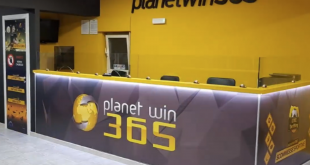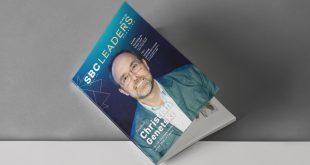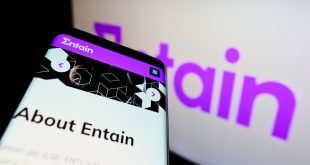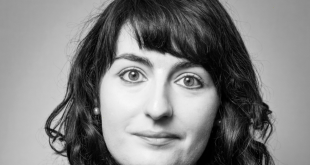The fight for women’s equality has come a long way since the Suffragette movement in the UK, or the women’s marches which took place in the US back in 1908. But in 2021, there is still more that needs to be done – especially when it comes to improving gender representation within the tech sector.
To mark International Women’s Day 2021, the Entain Foundation announced that it would be making a considerable donation to Girls Who Code in a bid to support young women interested in building careers within science, technology, engineering and mathematics (STEM).
Discussing this partnership, Grainne Hurst – Corporate Affairs Director at Entain – and Deborah Singer – CMO at Girls Who Code – spoke with SBC about the need to challenge gender stereotypes and how their global partnership can help change the future of the tech industry.
SBC: Firstly, why is it so important that we celebrate International Women’s Day? And how are you both marking IWD 2021?
GH: So I think, for me, International Women’s Day is an important time to come together to both appreciate and celebrate what women do across the world and all various walks of life. But also a chance to question what more can be done to continue to improve things.
And I think the key thing for us is that it’s not just a moment in time. You know, it’s not just the one point in the year at which you talk about women. But it’s a kind of catalyst moment in the year.
In terms of what we’ll be doing to mark the occasion, in the afternoon we have an excellent event internally with a lot of our colleagues, we have a range of panellists, talking about the importance of International Women’s Day for them, and how we can continue to challenge stereotypes. We’re also super excited to be launching our great initiative with Girls Who Code.
DS: This has been a tough last year for girls around the world. Because of the pandemic and remote schooling, they are experiencing an unprecedented learning loss. That goes throughout the pipeline from our youngest teenage girls all the way up through university level and into the workforce. We know that women in particular are really bearing the brunt of the pandemic and the global recession that’s resulting from it.
So this International Women’s Day feels more urgent than ever to signal that we are invested in young women and girls, that their education is a priority, that getting them into the jobs of the future and into the industries that are going to be shaping all of our lives is more important than ever.
This almost feels kind of like a call to arms in a way that others perhaps haven’t. I’m excited to celebrate it this year with this amazing gift that we’re receiving from Entain, to further the expansion of our programmes globally.
SBC: For those who don’t know, can you tell our readers what it is that Girls Who Code do?
DS: Yes, Girls Who Code is an international nonprofit dedicated to closing the gender gap in technology. We started with 20 girls in a classroom in New York City, and today have grown to reach 300,000 young women all around the world. And we do that in a number of ways.
We run free coding clubs after school that run in schools and community centres and universities where we spark girls interested in coding and also build a supportive community around them so that they have resources and people to lean on so that they persist.
And then we support young women at university in their journey into the tech workforce. We now have 80,000 college-aged alumni, and they are majoring in computer science at 15 times the U.S. average.
So in a short amount of time, we’ve been able to massively flood the pipeline. And that’s really exciting because those are college-aged young women who are available for companies like Entain, to bring into internships, to hire in a few years, and to really start to change the way the technical workforce looks around the world.
SBC: How did this partnership between Entain and Girls Who Code come about? And what do you hope to achieve through this alliance?
GH: Entain is a global tech and entertainment company. And now with a new female CEO at the helm she has really turbocharged our focus around inspiring and encouraging women into tech. With that, we wanted to reach out to organisations who could help us with it, because we know that we can’t achieve it alone.
We’re very conscious that we need to start that journey at a very early age through schools and community clubs which is why we reached out to Girls Who Code with their global footprint in the UK, US and India, Canada. We also have another partnership, which we’re launching next week with the Tech Girls foundation movement in Australia to do something similar and encourage young girls into inspiring them into STEM subjects.
DS: Entain reached out to us. What was exciting for us was the global nature of this partnership. Our work outside the US is still new, we’ve been at it for about three years now. So having partners that can help expand our global reach is really critical. We always say in our programmes that ‘you can’t be what you can’t see’. It’s so powerful to see a new female CEO leading this company as a role model for our girls. That was icing on the cake for us to get to have a role model inside a company that we can point our young women towards.
SBC: Girls’ participation in the STEM sector can often be limited – why do you think this is?
DS: With STEM participation, the pipeline is leaky throughout. But the biggest drop off happens in middle school, around ages eight to 11 when girls go from having equal interest in aptitude in STEM subjects, to really beginning to drop out of STEM and coding in particular. We’re seeing this globally.
In the UK, computer science A-Levels are only 15% women and women’s representation never recovers in university or the workforce. What we see happen in middle school is the impact of culture, that all of the messages that tell young women what they can be, and what professions are right for them, and what skills are right for them really start to enter a young woman’s psyche, and influence her beliefs about her future career paths.
So we teach girls to code in our programmes, but we also teach so much more. We help them build identity as computer scientists. We show them examples of other young women in the field and the long, rich history of women in computing that goes back to after world war two and women being some of the very first human computers. We’ve seen that that’s a really powerful model to bring girls into STEM and coding in particular, and then get them to persist and ultimately succeed in the field.
SBC: How will the investments into Girls Who Code help remove these barriers? How will education play a role in doing this?
GH: So we see the funding helping in two key areas: awareness and encouragement. Our funding will help to facilitate lots of the coding clubs globally as well as helping to drive the Girls Who Code pipeline initiatives for those girls who are college aged and over 18 that are looking to get into careers in technology.
It’s incredibly important for us because we know that 50% of the workforce is female. But as Deborah said, only 15% is in STEM. Now, at Entain, we’re breaking the mould slightly in a positive fashion because we actually have 30% of our colleagues in tech who are female. But we know that there’s always more that we can do as a company and collectively as a society, which is why I’m really excited about partnership.
DS: We’re particularly excited about the workforce development opportunities in this partnership. We will be expanding our footprint of coding clubs to spark girls’ interest, but then once they’re in the pipeline, we have to keep them there.
We keep them there by giving them access to companies, helping them learn what opportunities there are in the field, demystifying the difference between a data analyst and a product manager and cybersecurity and all the other different opportunities that are available, as well as introducing them to female role models, who can sponsor them on their journey. That’s what I’m really excited about as part of this partnership.
SBC: How do these investments position Entain in the wider society?
GH: Entain is a global tech and entertainment business. But as part of that, we have a responsibility to support and inspire the kind of technologists of the future, as well as obviously championing diversity and inclusion in our workplaces of business, but also beyond.
So we really want to use our experience as a force for good and inspiring young females to become the tech experts of the future. Now, we’re proud of what Entain has achieved already. We are the number one ranked company in the industry for our commitment to diversity and inclusion through the All-in Diversity Project but we know that there is more to do and that’s why we’re positioning ourselves as a key partner with excellent organisations like Girls Who Code.
SBC: What role does diversity and inclusion play in Entain’s new corporate charter?
GH: It’s at the heart of us creating the best place to work. So all around the world, we provide leading betting and gaming services to 1000s of our customers who are all diverse in nature. Similarly, our colleagues are equally diverse. At Entain, we want to create a culture where everybody is comfortable being themselves as well as feeling respected and valued for being themselves at work.
So a couple of years ago, we launched a diversity and inclusion strategy called Everybody’s In The Game, which aims to do just that. The strategy makes sure that we spot and celebrate differences and and make everybody who comes to work feel safe, secure, valued and respected. We’re doing well but there’s always more that we can do.
SBC: Following on from that, representation of women across the betting and gaming industry is continuing to improve, but what more can companies do to ensure that women are equally represented in c-level positions? What lessons can companies learn from Entain which has 50% female representation?
GH: I think the key for us is creating an inclusive culture, which is the best way to attract a diverse talent base, as well aS promoting tech role models in our sector, and inspiring the pipeline for the future. Again, we’re doing a lot of that through our diversity and inclusion strategy, whether that’s female networks, female leadership programmes.
We also partner with organisations such as Stonewall to utilise their expertise and benchmarking. We’re also working on things like tackling unconscious bias at various levels within our business. I think all of that together is helping to ensure that we are a great place for women to work.
DS: I think too often companies are focused on diversity only. How many women have I hired? How many people of colour are in my team? But companies also need to think about inclusion all the way from entry level right up to the C-Suite.
What does representation look like? What are my policies and practices to support a diverse group of people in these roles? You need to have real metrics and benchmarks around retention, promotion and pay equity – all of these are the foundation of building an inclusive workforce. It’s really exciting to hear that Entain is leading on that and you can see that in their numbers which are really impressive.
SBC: Looking at the tech sector in particular, why is it so important to have equal representation?
DS: I think there are a number of reasons. First is economic opportunity. Tech jobs are the fastest growing jobs in every economy around the world. They are the most resilient jobs. In a global recession, we are seeing the importance of technical roles. They are also the highest paying jobs in an economy – they can lift a woman and her family into the middle class. We need women to have these roles and have these salaries.
From a larger perspective, tech is often responsible for the innovation that we all see – whether it’s on climate change, cancer treatments or COVID-19 vaccinations. We need the perspectives of women and people of colour in these roles to solve the global challenges ahead. If we don’t have them, we are not going to be able to truly make progress on some of these big issues that require having everyone’s voice at the table.
GH: 100%, I couldn’t have put it better. I think that if you only have a small cohort of any particular group represented in a sector, you effectively get as an echo chamber, which isn’t good for all the individuals involved in the business to progress. I think Deborah’s right, we need these different perspectives to challenge, question and drive companies forward which you get with a diverse base rather than a one particular group.
SBC: So the theme of IWD 2021 is #ChooseToChallenge. The tech sector is very male dominated, so what role can men play in challenging current gender stereotypes within the industry?
GH: I think the responsibility has to fall on all of us no matter what gender or background, because I think if you just have one group, it’s basically a campaigning group. But if you have a coordinated effort, then that’s the best way to help change policies, procedures, beliefs, stereotypes. I think it’s important that we shouldn’t have an ‘us versus them’ culture, it should be us all working together to help challenge stereotypes, which we are doing at Entain in order to achieve the best outcomes for our colleagues.
DS: Allyship, and particularly male allyship, is so important. It’s an active thing to be an ally. An example of this that I love is when we were visiting a coding club that we have in Rochester, New York, we noticed that there were a number of men that had attended the talk. Afterwards they came over to join the women. We asked what they were doing there and they told us they were the ‘Men who support women in computing’ club.
They had a club that was all about allyship and about showing up to support women and figuring out how they could start to break down some of the systemic barriers that women are facing in their everyday life. In the workforce setting, it’s really important that men are showing up to these discussions alongside women. It can’t be women just talking to each other in a room – we need everyone in the room. So for this International Women’s Day, I would encourage men to remember that they have a role to play in this broader fight for equality.
SBC: And finally, can you talk about a time when challenging stereotypes led to something good for you?
GH: So in a previous life at an organisation that I worked at, I was part of a vocal team who were able to actually update the company maternity policy and flexibility policies to encourage more women to return to work after having children. The reason we did that was that as a society, we know that we lose a lot of women from the workforce when they reach a certain age and decide to take different paths in life. It was great, because as we all probably know, the attraction rates and the retention rates of females increased, as a result of a small change that the business made.
DS: I’m struggling to think of an example and I think that’s because often when I experience stereotypes or bias – it’s less explicit and more implicit. When I started my career in tech at Google, I remember one day when I got off the elevator on the wrong floor. I was on the marketing and comms team, which was predominantly women, I had a female boss and a female boss’s boss, and I felt really supported and seen as a communications associate.
When I got off on the wrong floor, I realised it was an engineering floor, and I looked out, and there were rows and rows of men, there wasn’t a single woman inside, nor people of colour. It was the first time I really remember really seeing the gender gap in tech – it was staring me in the face. That moment has stuck with me because of how powerful a signal it was. And no one had to say anything. It was really clear that coding and technical roles were for men, and that I was lost on the floor, like I didn’t belong there. Ever since then, I’ve really intentionally sought out places where people were like me, and places where I felt like I belonged because I remember the feeling of not belonging.
For the young women that we work with, I don’t want them to ever have that feeling that they don’t belong. And that will only happen when we have a truly diverse and equitable workforce.








